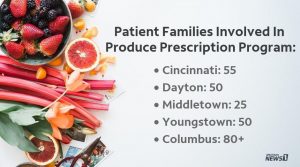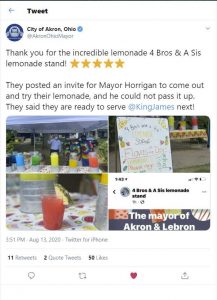A panel of outside advisers to the Food and Drug Administration will consider on Tuesday whether the COVID-19 vaccine developed by Pfizer and BioNTech for elementary school-aged children should be authorized on an emergency basis.
What You Need To Know
- A panel of outside advisers to the FDA will consider on Tuesday whether the COVID-19 vaccine developed by Pfizer and BioNTech for elementary school-aged children should be authorized on an emergency basis
- If approved, the shots would be the first to be made available in the United States to children younger than 12 make an additional 28 million Americans eligible for vaccination
- An FDA review last week affirmed results from Pfizer showing the two-dose shot was nearly 91% effective at preventing symptomatic infection in 5- to 11-year-olds
- The Biden administration said last week it has secured enough shots to vaccinate all kids 5 to 11
If approved, the shots would be the first to be made available in the United States to children younger than 12 make an additional 28 million Americans eligible for vaccination.
The Vaccines and Related Biological Products Advisory Committee will meet virtually beginning at 8:30 a.m. Eastern. The panel’s vote is not binding, but will be weighed heavily when the FDA makes its decision.
The meeting, which will be streamed online, will include presentations by Pfizer and BioNTech, the CDC, and the FDA, followed by public comments and debate among the committee members.
If authorized by the FDA, the Centers for Disease Control and Prevention’s vaccine advisory panel will meet next week to make additional recommendations on who should receive the shots, and then the agency would issue its final guidelines.
Dr. Anthony Fauci, director of the National Institute of Allergy and Infectious Diseases and President Joe Biden’s chief medical adviser, told ABC’s “This Week” on Sunday that he’s optimistic children ages 5 to 11 could begin receiving shots in early November.
“You never want to get ahead of the FDA in their regulatory decisions, nor do you want to get ahead of the CDC and their advisers on what the recommended would be,” Fauci said. “But if you look at the data that’s been made public and announced by the company, the data looked good as to the efficacy and the safety.”
An FDA review last week affirmed results from Pfizer showing the two-dose shot was nearly 91% effective at preventing symptomatic infection in 5- to 11-year-olds. Researchers calculated the figure based on 16 COVID-19 cases in youngsters given dummy shots versus three cases among vaccinated children. There were no severe illnesses reported among any of the youngsters, but the vaccinated ones had much milder symptoms than their unvaccinated counterparts.
Most of the study data was collected in the U.S. during August and September, when the delta variant had become the dominant COVID-19 strain.
The FDA review found no new or unexpected side effects. Those that did occur mostly consisted of sore arms, fever or achiness.
However, FDA scientists noted that the study wasn’t large enough to detect extremely rare side effects, including myocarditis, a type of heart inflammation that occasionally occurs after the second dose.
In their analysis, FDA scientists concluded that in almost every scenario the vaccine’s benefit for preventing hospitalizations and death from COVID-19 would outweigh any serious potential side effects in children.
The shots use a lower dosage — a third of what is given to adults. Pfizer recommends the two shots be administered 21 days apart.
Pfizer’s vaccine is fully approved in the U.S. for people ages 18 and older, and it has emergency use authorization for 12- to 17-year-olds.
“Over the past nine months, hundreds of millions of people ages 12 and older from around the world have received our COVID-19 vaccine,” ” Albert Bourla, Pfizer’s chairman and chief executive officer, said in a statement last month. “We are eager to extend the protection afforded by the vaccine to this younger population, subject to regulatory authorization, especially as we track the spread of the Delta variant and the substantial threat it poses to children.”
The Biden administration said last week it has secured enough shots to vaccinate all kids 5 to 11.
The federal government is planning to make the vaccine available at tens of thousands of pharmacies, as well as doctors’ offices, children’s hospitals, community health centers, rural health clinics and some schools.
Children are at a lower risk than adults of developing severe COVID-19, but serious cases do occur, and youths can spread the virus to others.
Coronavirus hospitalizations among children surged this summer before hitting their highest point of the pandemic in early September, despite the availability of vaccines for those 12 and older.
According to the American Academy of Pediatrics, 6.2 million children have been infected with COVID-19 during the pandemic. Six-hundred thirty Americans under the age of 18 have died from the virus, according to CDC data.
Meanwhile, Moderna announced Monday that clinical trial data show its two-dose COVID-19 vaccine generates a strong immune response in children ages 6 to 11. The company plans to submit its data, which has not yet been peer reviewed, to regulators worldwide.
Pfizer and Moderna also are testing vaccines for children as young as 6 months old. Johnson & Johnson, too, is developing vaccines for children.
The Associated Press contributed to this report.




